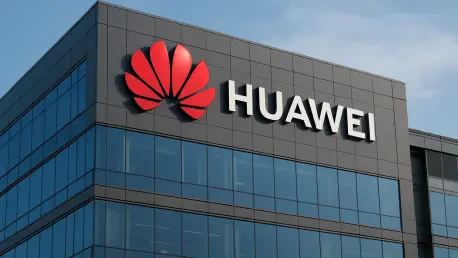In a surprising turn of events, Spain’s digital transformation ministry stepped in at the eleventh hour to halt a significant 10 million euro ($10.6 million) contract that would have deepened the integration of Huawei equipment into the nation’s academic and research network, known as RedIRIS-NOVA. This sprawling 16,000-kilometer fiber backbone serves as a critical link for over 500 universities and research centers, alongside essential public institutions such as the Ministries of Defense, Justice, and Economy. Managed by the public entity Red.es, the network has been grappling with escalating traffic demands, particularly from supercomputing initiatives and the recent inclusion of military academies. The contract, which entailed the supply, installation, and management of Huawei routing equipment through telecom provider Telefonica, had initially received approval. However, it was abruptly terminated due to overarching concerns about digital strategy and strategic autonomy, as articulated by government officials. This decision has sparked widespread discussion about the intersection of technology and security in modern infrastructure.
Unpacking the Security Concerns
The cancellation of this contract is emblematic of broader apprehensions surrounding Huawei, a Chinese tech giant frequently flagged as a high-risk vendor by Western nations. Spain has come under intense scrutiny from both the United States and European Union officials, particularly following revelations of a separate 12.3 million euro deal spanning recent years, which saw Huawei managing sensitive judicial wiretap data for the Ministry of the Interior. Such arrangements prompted stern warnings about potential data leaks and security vulnerabilities, with some US lawmakers even hinting at restricting intelligence sharing with Spain. The EU has been pressing its member states since 2020 to limit or exclude high-risk suppliers like Huawei from critical infrastructure, with intensified efforts in recent years to phase out their equipment. Yet, progress remains uneven, as only a handful of countries have enacted substantial legal measures to address these concerns. This situation underscores the delicate balance between leveraging advanced technology and safeguarding national security in an era of geopolitical tension.
The decision to scrap the Huawei contract also reflects a growing trend among Western nations to prioritize digital sovereignty over the potential cost savings or efficiencies offered by foreign technology providers. The RedIRIS-NOVA network’s expansion was crucial to meet rising data demands, but the reliance on Huawei equipment raised red flags, especially given its connections to sensitive governmental and military entities. Despite Huawei’s repeated denials of security risks or affiliations with the Chinese government, skepticism among policymakers persists. The overarching narrative across the EU and beyond reveals a cautious stance toward Chinese tech firms in vital systems, driven by fears of espionage and data breaches. Spain’s last-minute intervention highlighted the complex interplay of innovation, geopolitics, and national interest. Looking back, this moment served as a pivotal reminder of the challenges faced in maintaining secure digital networks, prompting a renewed focus on developing domestic alternatives and strengthening international cooperation to address these multifaceted risks.









